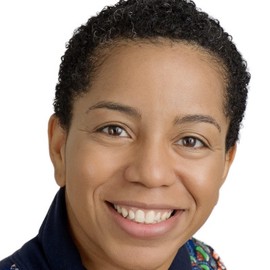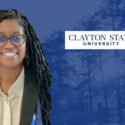A new study of more than 5 million articles published between 2008 and 2019 — primarily by U.S.-based researchers — White and Asian male authors exert an outsized influence on the selection of research topics, publish on the broadest range of issues, and are more often listed as first authors. On the other hand, Black, Latino, and women authors are underrepresented in many STEM fields and often appear as authors only in less-cited fields.
The authors explain that “the compound effect of different citation rates of topics and unequal distribution in topics by race and gender leads to negative effects for marginalized groups and for science itself, as some topics become systematically less studied.”
The authors calculated that had the distribution of authors matched the U.S. population over the last four decades, researchers would have produced 29 percent more articles on public health, 26 percent more on gender-based violence, 25 percent more on gynecology and gerontology, 20 percent more on immigrants and minorities, and 18 percent more on mental health.
The research found that White first authors had the broadest range of topics, those authored by Black, Latino, and women authors were frequently more specialized. For instance, leading topics for Black women researchers were “Black women violation,” “equality promotion,” and “social identity.”
“This study highlights the importance of not only expanding gender and racial diversity among researchers in high-impact areas of study, but also promoting research in historically underrepresented areas through increased funding,” said Cassidy R. Sugimoto, the Tom and Marie Patton Chair in the School of Public Policy at the Georgia Institute of Technology and a co-author of the study.
 “Our research suggests that for minoritized scholars, what we study is framed by our racialized and gendered identities” added Thema Monroe-White, an assistant professor at Berry College in Georgia and co-author of the study. “This finding pushes against idealized notions of meritocracy in science. Institutions and individual disciplines should take action by amplifying research produced by minoritized scholars, particularly on topics for which they have greater representation yet whose impact remains marginalized.”
“Our research suggests that for minoritized scholars, what we study is framed by our racialized and gendered identities” added Thema Monroe-White, an assistant professor at Berry College in Georgia and co-author of the study. “This finding pushes against idealized notions of meritocracy in science. Institutions and individual disciplines should take action by amplifying research produced by minoritized scholars, particularly on topics for which they have greater representation yet whose impact remains marginalized.”
Dr. Monroe-White earned bachelor’s and master’s degrees at Howard University in Washington, D.C. She holds a Ph.D. in science, technology, and innovation policy from the Georgia Institute of Technology
The full study, “Intersectional Inequalities in Science,” was published in the Proceedings of the National Academies of Science. It may be accessed here.







